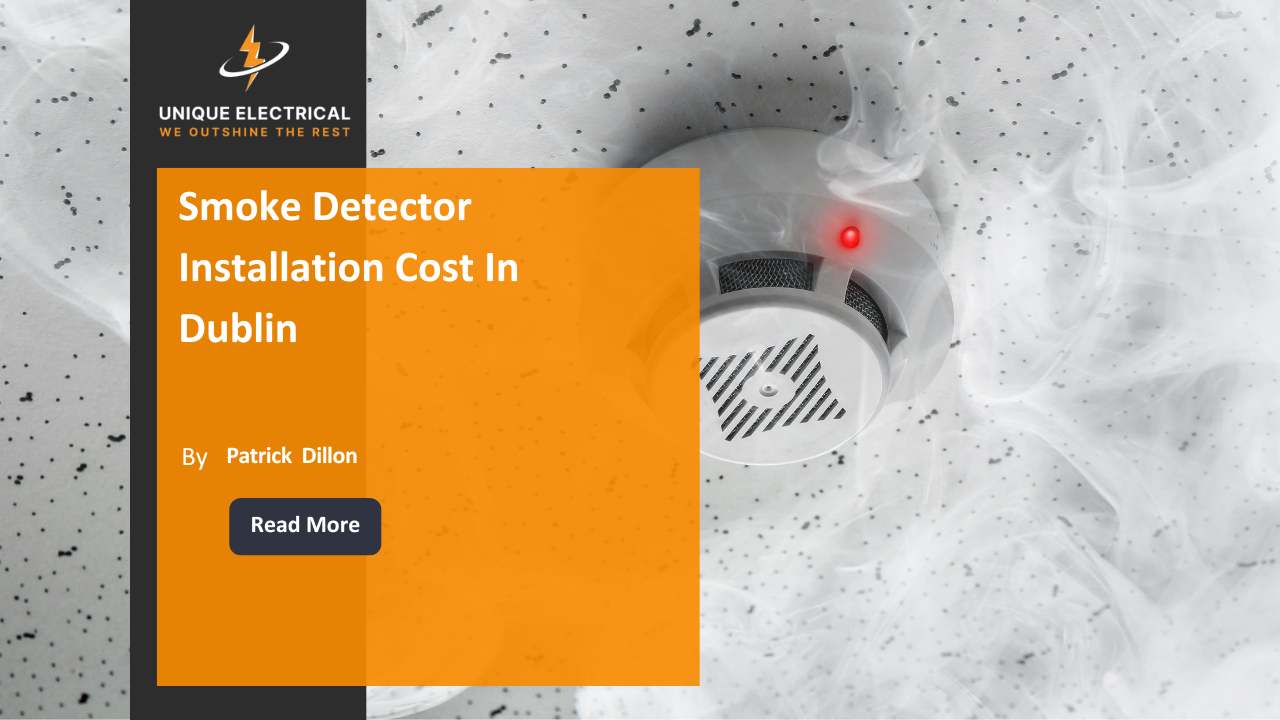Are you worried about the safety of your home’s electrical system or noticing signs of damage in your fuse board? An outdated fuse board might seem like a minor issue, but it could expose you to serious electrical hazards.
Fuse boards play a crucial role in managing and protecting your property’s electrical circuits, ensuring the safe distribution of electricity throughout your home. When outdated, however, they can become a source of electrical inefficiency and even danger.
In this blog, we will explore what are the risks of an outdated fuse board, identify the warning signs that it’s time for an upgrade, and explain how a modern solution can protect your home and loved ones.
Why Old Fuse Boards Are a Hidden Danger?
Old fuse boards, also known as consumer units, may not meet modern safety standards and could leave your home exposed to electrical hazards. As technology evolves, the demand on your electrical system increases.
Appliances such as air fryers, smart devices, and high-wattage gadgets require more energy than older systems were designed to handle.
An outdated fuse board may struggle to manage this load, increasing the risk of overheating and electrical fires. Moreover, older boards often lack essential safety features like residual current devices (RCDs), which are designed to cut off power in case of a fault.
Another hidden danger is the gradual aging and damage of components. Wiring connected to an old fuse board might degrade over time, leading to lost connections or short circuits.
These issues can cause flickering lights, power outages, or even electrical shocks. Without routine inspection or upgrades, an old fuse board silently compromises the safety and efficiency of your entire electrical system.
Upgrading your fuse board isn’t just about staying current—it’s about protecting your property and ensuring the well-being of everyone inside.
What Are the Top 10 Risks of an Outdated Fuse Board?
An outdated fuse board is more than just an old piece of electrical equipment—it can be an alert for your safety and property.
Below, we'll discuss the top risks of an outdated fuse board, highlighting why upgrading is crucial for modern homes and businesses.
1. Lack of RCD Protection
Residual Current Devices (RCDs) are essential for preventing electrical shocks and cutting off power during faults. Many older fuse boards lack RCD protection, leaving your home in danger of potentially fatal accidents.
Without this safety feature, the risk of electrocution increases significantly, especially in homes with children or elderly residents.
2. Increased Fire Risk
Outdated fuse boards often fail to manage the increased electrical demands of modern homes, leading to overheating and short circuits. This significantly raises the chance of electrical fires, which can cause extensive damage and endanger lives.
Older boards also lack fire-resistant materials, further compounding the risk.
3. Not Compliant with Current Standards
Electrical standards have advanced significantly over the years to ensure safety and efficiency. An outdated fuse board may not meet current regulations, making your home or business non-compliant.
This can pose legal and insurance issues, particularly if you are looking to sell or rent out your property.
4. No Surge Protection
Surge protection save your electrical appliances and devices from power surges caused by lightning strikes or grid fluctuations. Older fuse boards often lack this feature, leaving your electronics at risk of damage.
Replacing a single appliance due to a power surge can be costly, let alone an entire system.
5. Overloading Circuits
Older fuse boards were not designed to handle the electrical demands of modern households, often leading to overloading.
This can cause frequent trips of circuits, power outages, and potential damage to your electrical wiring system.
6. Inefficient Energy Usage
An outdated fuse board may operate inefficiently, causing higher energy consumption and increased utility bills.
Modern fuse boards are designed to distribute power more effectively, saving energy and reducing costs over time.
7. Outdated Circuit Breakers
Older circuit breakers may not respond quickly enough to electrical faults, increasing the chance of damage or accidents.
Modern boards feature more reliable breakers that act quickly to protect your property and devices.
8. Risk of Electrical Shocks
As components age, they can become loose or damaged, increasing the risk of electrical shocks.
This is particularly dangerous in homes with young children or in workplaces where safety is a priority.
9. Difficulty in Repairs or Maintenance
Parts for old fuse boards may no longer be readily available, making repairs costly and time-consuming.
This can lead to delays in addressing issues, leaving your electrical system open to attack in the meantime.
10. Reduced Property Value
A home or business with an outdated fuse board may deter buyers or tenants due to safety concerns.
Upgrading to a modern system can improve the value and appearance of your property.
Conclusion
An outdated fuse board poses serious risks, from increased fire hazards and electrical shocks to non-compliance with current standards and inefficient energy usage.
This blog has outlined the top dangers, such as lack of RCD protection, no surge protection, and the inability to handle modern electrical demands. Upgrading to a modern fuse board is not just a choice but a necessity for ensuring the safety, efficiency, and value of your property.
At Unique Electrical, we specialise in upgrading fuse boards to meet the highest safety standards. Contact us today for a consultation and let us help you protect your home and loved ones with a reliable electrical solution!












